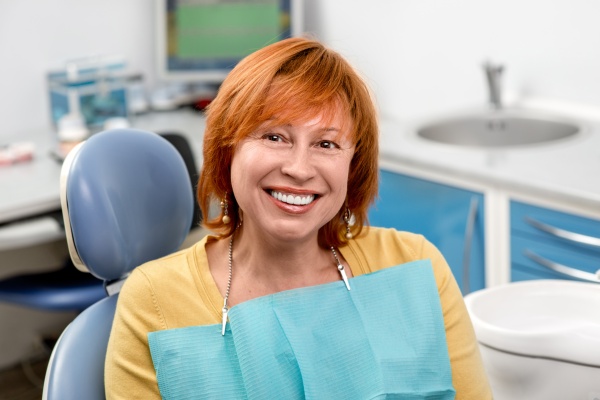Tea can cause lasting discoloration of your teeth, but good oral care habits can help reduce staining. Brushing your teeth regularly, especially after drinking tea, can be effective in preventing tea stains.
Additionally, mixing tea with milk or cream can lighten the color of the beverage and prevent interaction with teeth enamel. Some alternatives to tea that don’t stain teeth include white tea, yerba mate, and rooibos, which also have additional oral health benefits.
Although tea stains teeth worse than coffee due to its tannin content, both beverages can cause discoloration over time. Therefore, practicing good oral hygiene and being mindful of tea consumption can help maintain a brighter smile.

Credit: gkdentaloffice.com
Exploring The Impact Of Tea On Teeth Staining
Tea is a beloved beverage enjoyed by millions around the world. Whether you prefer a hot cup of black tea in the morning or a soothing cup of green tea in the afternoon, there’s no denying the comforting effects of this ancient drink. However, there is one question that often lingers in the minds of tea lovers: does tea stain your teeth?
Understanding The Science Behind Teeth Staining
Before we delve into the impact of tea on teeth staining, it’s important to understand the science behind why certain foods and beverages can discolor our pearly whites. The outer layer of our teeth, known as enamel, is composed of minerals that give it its white appearance. However, enamel is not completely smooth. Instead, it contains tiny pores and ridges that can trap pigments from the foods and beverages we consume. Over time, these pigments can build up and result in teeth staining.
The Role Of Tannins In Tea Stains
When it comes to tea staining, one of the key culprits is a class of compounds known as tannins. Tannins are naturally occurring polyphenols found in various plant foods, including tea leaves. These compounds are responsible for the astringent taste and deep color of certain teas. Unfortunately, tannins also have the ability to bind to the proteins in our teeth, leading to discoloration over time.
It’s worth mentioning that different types of tea can have varying levels of tannins. For example, black tea tends to have higher levels of tannins compared to green or herbal teas. This is why black tea is often associated with more pronounced teeth staining. However, it’s important to note that even green tea, which is typically considered a healthier choice, can still contribute to teeth staining due to its tannin content.
So, what can you do to prevent or minimize the impact of tea stains on your teeth? One simple step is to swish your mouth with water after consuming tea. This can help to rinse away some of the pigments and tannins that may be lingering on your teeth. Additionally, maintaining a consistent oral care routine, which includes brushing your teeth at least twice a day and visiting your dentist regularly, can help to keep your teeth bright and healthy.
In Conclusion
While tea can contribute to teeth staining, especially due to its tannin content, there are steps you can take to minimize its impact. By practicing good oral care habits and being mindful of your tea consumption, you can continue to enjoy the many benefits of this beloved beverage without worrying about the appearance of your teeth.
Different Types Of Tea And Their Staining Potential
Tea can stain your teeth due to tannins, but you can reduce staining by mixing tea with milk or cream. Brushing your teeth immediately after drinking tea also helps prevent long-term discoloration. Switching to white tea, yerba mate, or rooibos can be a coffee alternative that won’t stain your teeth.
Examining The Staining Power Of Black Tea
Black tea is one of the most common teas consumed worldwide and is known for its strong flavor and robust color. When it comes to teeth staining, black tea is notorious for its ability to leave yellowish stains on your enamel. This is primarily due to the high concentration of tannins found in black tea. Tannins are natural compounds that can easily bind to the enamel and cause discoloration over time.
Additionally, black tea is often brewed at a higher temperature and for a longer duration compared to other teas, which can further enhance its staining potential. The extended brewing process allows the tannins to permeate the tea, resulting in a stronger pigment that can adhere to your teeth.
How Green Tea Compares In Terms Of Teeth Staining
Green tea is widely praised for its health benefits, but how does it fare when it comes to teeth staining? Unlike black tea, green tea is less likely to leave prominent stains on your teeth. This is because green tea contains fewer tannins, which are responsible for the discoloration.
Although green tea may still contribute to minor teeth staining over time, its effects are generally milder compared to black tea. The relatively lower tannin content and lighter color of green tea help reduce the risk of noticeable enamel discoloration.
Assessing The Impact Of Herbal And Fruit Teas
Herbal and fruit teas are often chosen for their unique flavors and potential health benefits. While these teas may not contain high levels of tannins like black tea, they can still contribute to teeth staining to varying degrees.
Some herbal teas, such as chamomile and hibiscus, may contain pigments that can leave stains on your teeth if consumed regularly over time. It’s important to note that the staining potential of these herbal and fruit teas may vary depending on their specific ingredients and brewing methods.
To minimize the risk of teeth staining from herbal and fruit teas, it’s recommended to practice good oral hygiene habits, such as regular brushing and rinsing your mouth with water after consuming these beverages. This can help remove any residue and reduce the chances of discoloration.
Preventing Tea Stains On Your Teeth
Tea is a popular beverage enjoyed by many people around the world. However, the tannins in tea can cause unsightly stains on your teeth over time. While it may seem inevitable, there are several measures you can take to minimize teeth staining from tea consumption. By adopting these tips and techniques, you can continue to enjoy your favorite cup of tea without worrying about the impact on your smile.
Tips For Minimizing Teeth Staining From Tea Consumption
When it comes to preventing tea stains on your teeth, a proactive approach is key. Here are some tips to help minimize the effects of tea on your smile:
- Mix beverages with milk or cream: By mixing tea with dairy products, such as milk or cream, you can lighten the color of the beverage. Additionally, the proteins present in dairy attach to the tannins, preventing their interaction with tooth enamel.
- Use a straw: When sipping on tea, try using a straw to bypass direct contact with your teeth. This way, the tea is less likely to come into prolonged contact with your enamel, reducing the risk of staining.
- Sip and rinse with water: After enjoying a cup of tea, swish your mouth with plain water to help wash away any residual tea particles. This simple act can go a long way in preventing stains from setting in.
Brushing Techniques To Combat Tea Stains
Brushing your teeth regularly is one of the most effective ways to combat tea stains. However, to maximize its effectiveness, it’s important to use proper brushing techniques:
- Brush immediately after drinking tea: If possible, try to brush your teeth within 30 minutes after consuming tea. This helps to remove any tea residue before it has a chance to cause stains.
- Use a fluoride toothpaste: Choose a toothpaste that contains fluoride, as this ingredient helps strengthen tooth enamel and protect against staining.
- Brush gently and thoroughly: When brushing, use gentle circular motions to clean all surfaces of your teeth and pay special attention to areas where stains are more likely to occur, such as near the gumline.
The Role Of Mouthwash In Reducing Tea Stains
In addition to regular brushing, using mouthwash can be an effective tool in reducing tea stains on your teeth. Consider the following:
| Mouthwash Recommendation | Benefits |
|---|---|
| Antimicrobial Mouthwash | Using an antimicrobial mouthwash can help kill bacteria that contribute to staining. Look for a mouthwash that contains ingredients like chlorhexidine or cetylpyridinium chloride. |
| Whitening Mouthwash | Opt for a whitening mouthwash that contains hydrogen peroxide. This ingredient can help remove surface stains and brighten your smile over time. |
| Fluoride Mouthwash | Consider using a fluoride mouthwash to strengthen tooth enamel and protect against stains. Look for a mouthwash that specifically mentions fluoride as an active ingredient. |
By incorporating these brushing techniques and using the right mouthwash into your oral care routine, you can effectively combat tea stains on your teeth and maintain a bright, white smile. Remember to be consistent and make these habits a part of your daily teeth cleaning regimen.
Related: Does Tea Stain Your Teeth? Exploring the Effects of Tea on Dental Health
Natural Remedies For Removing Tea Stains
Tea is a beloved beverage that provides comfort and relaxation to many. However, it may also leave behind unwanted stains on our teeth. If you’re a tea lover who’s concerned about maintaining a bright and healthy smile, fret not. There are natural remedies that can help remove tea stains from your teeth, allowing you to enjoy your favorite drink without worrying about dental discoloration. In this article, we will explore some effective ways to combat tea stains and regain your radiant smile.
Exploring The Benefits Of Baking Soda For Teeth Whitening
Baking soda, also known as sodium bicarbonate, has long been recognized for its teeth-whitening properties. Its mild abrasive nature helps remove surface stains caused by tea consumption, restoring the natural color of your teeth and giving you a brighter smile. Additionally, baking soda has alkaline properties that can help balance the pH levels in your mouth, creating an unfavorable environment for plaque and bacteria to thrive.
Here’s a simple DIY teeth-whitening remedy using baking soda:
- Mix 1 teaspoon of baking soda with enough water to form a paste.
- Apply the paste to your toothbrush and gently brush your teeth in a circular motion for 2 minutes.
- Rinse your mouth thoroughly with water.
- Repeat this process once or twice a week to help remove tea stains and maintain a brighter smile.
Remember to use this remedy in moderation, as excessive use of baking soda can wear down the enamel on your teeth.
Other Home Remedies For Removing Tea Stains From Teeth
In addition to baking soda, there are several other natural remedies that can effectively remove tea stains from teeth. These remedies are easily accessible and can be incorporated into your daily oral care routine. Here are some popular options:
- Apple Cider Vinegar: Dilute apple cider vinegar with water and use it as a mouthwash. Its acidic properties can help break down tea stains and whiten your teeth.
- Strawberries: Crush a ripe strawberry into a pulp and apply it to your teeth. The natural enzymes present in strawberries can help remove surface stains.
- Activated Charcoal: Brushing your teeth with activated charcoal can absorb and remove stains caused by tea. However, it’s important to use activated charcoal sparingly to avoid damaging your enamel.
These home remedies can be effective in removing tea stains, but it’s essential to remember that prevention is key. Practicing good oral hygiene, such as regular brushing and flossing, and minimizing the consumption of tea or rinsing your mouth with water after drinking can help prevent tea stains from forming in the first place.
Teeth Whitening Options For Tea Stains
Tea can stain your teeth due to its tannin content, but there are teeth whitening options available to combat these stains. Brushing your teeth regularly, especially immediately after drinking tea, can help reduce staining. Additionally, mixing tea with milk or cream can lighten the color of the beverage and prevent interaction with tooth enamel.
If you’re a tea lover, you may have noticed that your teeth are not as bright and white as you’d like them to be. The tannins present in tea can cause stains on your teeth over time. But fret not, there are several teeth whitening options available to help combat those tea stains and restore your smile’s brilliance.
Professional Teeth Whitening Treatments For Tea Stains
If you’re looking for quick and effective results, professional teeth whitening treatments are a great option. Dentists offer a variety of professional whitening treatments that can effectively remove tea stains and brighten your smile in just one session. These treatments usually involve the use of a high-concentration whitening gel and specialized equipment to speed up the whitening process.
Some common professional teeth whitening treatments for tea stains include:
- Zoom Teeth Whitening: This in-office treatment uses a powerful whitening gel and a special light to accelerate the whitening process. It can remove years’ worth of tea stains in just one session, giving you noticeably whiter teeth.
- Laser Teeth Whitening: This treatment also uses a whitening gel, but it is activated by a laser. The laser helps to break down the tea stains and bleach your teeth, resulting in a brighter smile.
- Custom Tray Whitening: In this treatment, your dentist creates custom-made trays that fit snugly over your teeth. You’ll be given a whitening gel to apply to the trays and wear them for a specific period each day. Over time, the gel will remove tea stains and whiten your teeth.
Over-the-counter Whitening Products For Tea Stained Teeth
If you prefer the convenience of whitening your teeth at home, there are several over-the-counter whitening products available that can help fade tea stains. These products are generally easy to use and more affordable than professional treatments.
Popular over-the-counter whitening products for tea stained teeth include:
- Whitening Toothpaste: Look for toothpaste that specifically targets tea stains and contains whitening agents such as hydrogen peroxide or baking soda. Regular use can help gradually remove stains and brighten your smile.
- Whitening Strips: These thin, flexible strips are coated with a whitening gel and are applied directly to your teeth. Leave them on for the recommended time, and over time, they can help lighten tea stains.
- Whitening Mouthwash: Some mouthwashes contain whitening agents that can help remove tea stains and maintain your oral hygiene. Use them as directed, swishing the mouthwash around your mouth for the recommended time.
Remember, consistency is key when using over-the-counter whitening products. Use them as directed and be patient, as it may take a few weeks to see noticeable results.
In conclusion, tea stains on your teeth can be a common concern for tea lovers. However, there are plenty of teeth whitening options available to effectively remove tea stains and restore the brilliance of your smile. Whether you choose professional treatments or over-the-counter products, make sure to follow the instructions and maintain good oral hygiene practices for long-lasting results.
Frequently Asked Questions On Does Tea Stain Your Teeth
How Do I Keep Tea From Staining My Teeth?
To prevent tea from staining your teeth, mix it with milk or cream. This lightens the color of the beverage and the proteins in the dairy attach to the tannins, preventing them from interacting with your teeth enamel. Additionally, brush your teeth regularly and especially after drinking tea for better results.
Does Tea Permanently Stain Teeth?
Tea can permanently stain your teeth. Regular brushing, especially immediately after drinking tea, can help reduce staining. Mixing tea with milk or cream can also lighten the color and prevent interaction between tannins and teeth enamel. White tea, yerba mate, and rooibos are alternative options that are less likely to stain teeth.
Which Teas Don’t Stain Your Teeth?
White tea, yerba mate, and rooibos are teas that don’t stain your teeth. These teas are minimally processed and have health benefits. Additionally, drinking tea with milk or cream can lighten the color and prevent staining. Regularly brushing your teeth after drinking tea can also help reduce staining.
What Stains Teeth Worse Coffee Or Tea?
Tea stains teeth worse than coffee due to its acid content and tannins. Drinking tea regularly can cause lasting discoloration, but brushing immediately after drinking can help reduce staining. White tea, yerba mate, and rooibos are coffee alternatives that won’t stain teeth.
Conclusion
To maintain a bright smile, it’s important to be aware of the potential staining effects of tea on your teeth. While not as strong as coffee, tea contains tannins that can leave behind dull gray or yellowish stains if consumed regularly.
The good news is that practicing good oral hygiene, such as brushing your teeth regularly and swishing with water after drinking tea, can help reduce and prevent these stains. Additionally, choosing teas like white tea, yerba mate, and rooibos can be great alternatives that won’t stain your teeth as much.
By incorporating these habits and making mindful tea choices, you can enjoy your favorite beverage without worrying about staining your teeth.








